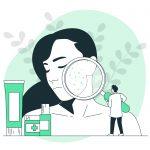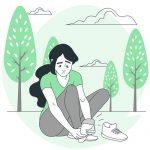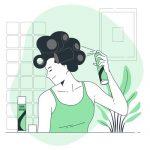
To Consider
If you’re struggling with acne, you’re certainly not alone! Acne affects millions of people worldwide and can be a source of frustration and low self-esteem. But the good news is that there are easy and effective tips you can do to prevent acne. In this blog post, we’ll discuss Acne Causes, Treatments and Prevention. We’ll look at what causes acne, the different treatments available, and how you can prevent it from happening in the first place. So let’s get started and learn how to say goodbye to acne for good!
What is acne?
Acne is a skin condition that affects millions of people worldwide. It’s characterized by the appearance of pimples, blackheads, and whiteheads on the face, neck, back, and chest. While it’s most commonly associated with puberty, acne can affect people of all ages. Acne is not just a cosmetic issue, but it can also affect one’s self-esteem and mental health. To effectively deal with acne, it’s important to understand its Causes, Treatments and Prevention.
What causes acne?
Acne is a common skin condition that affects people of all ages. It is caused by the clogging of hair follicles with oil and dead skin cells, leading to the development of pimples, blackheads, and whiteheads. The exact cause of acne is not fully understood, but there are several factors that are known to contribute to its development.
One of the main causes of acne is hormonal changes, particularly during puberty. During this time, the body produces more androgens, which stimulate the production of oil in the skin. This excess oil can clog pores and lead to the formation of pimples.
Other factors that can contribute to the development of acne include genetics, stress, diet, and certain medications. For example, some medications, such as corticosteroids and anticonvulsants, can cause acne as a side effect.
Fortunately, there are a variety of treatments and prevention measures that can help manage acne. Topical treatments, such as benzoyl peroxide and salicylic acid, can help reduce inflammation and unclog pores. Oral medications, such as antibiotics and hormonal treatments, may also be used in severe cases of acne.
In addition to treatments, there are several steps that can be taken to prevent the development of acne. These include maintaining good hygiene practices, avoiding harsh or abrasive skin care products, and avoiding foods that are known to trigger acne outbreaks. With proper care and treatment, it is possible to effectively manage acne and maintain clear, healthy skin.
How can I treat acne?

Treating acne can be a challenging process, especially when it’s caused by hormonal imbalances or genetics. However, there are a variety of treatments available that can help reduce the appearance and severity of acne.
Topical treatments are one of the most common options for treating acne. These medications can be applied directly to the affected areas and may include ingredients such as benzoyl peroxide, salicylic acid, or retinoids. These ingredients work by killing bacteria, reducing inflammation, and unclogging pores.
Another option is oral medications, such as antibiotics or isotretinoin, which can be prescribed by a dermatologist. These medications work by targeting the underlying causes of acne, such as excess oil production or hormonal imbalances.
In addition to medication, there are a variety of natural remedies that may also be helpful in treating acne. These include tea tree oil, aloe vera, and green tea, all of which have been shown to have anti-inflammatory and antibacterial properties.
Ultimately, the best approach to treating acne will depend on the severity of your condition and the underlying causes. It’s important to work closely with your dermatologist to develop a treatment plan that’s tailored to your specific needs and goals. With the right treatment and care, it’s possible to say goodbye to acne for good.
How can I prevent acne?
Preventing acne can be a little tricky as it can be caused by various factors. However, taking care of your skin and making some lifestyle changes can help keep acne at bay.
The causes of Acne are varied and can include hormonal imbalances, genetics, and certain medications. However, by following these prevention tips, you can reduce your risk of developing acne. If you do experience acne, there are many treatment options available, such as over-the-counter medications, prescription creams or oral medications, and procedures like chemical peels or laser therapy. These could be universal or emergency measures, along with we’ll list the most effective Acne preventative therapies later. It’s also important to consult with a dermatologist to determine the best course of treatment for your specific case of acne. With the right treatment and prevention methods, you can say goodbye to acne and hello to clear, healthy skin.
Here are some effective tips to help prevent Ance:
- Cleanse your face regularly – Cleansing your face regularly can help prevent the buildup of oil and dirt that can cause acne.
- Avoid using oily products – Oily products can clog pores and contribute to the formation of acne. Be sure to read the labels of the products you use and avoid any that contain oil.
- Keep your hands off your face – Touching your face with your hands can transfer dirt and bacteria to your skin, which can cause acne.
- Eat a healthy diet – A healthy diet can help reduce the inflammation that can contribute to acne. Try to eat a diet rich in fruits, vegetables, and lean proteins.
- Stay hydrated – Drinking plenty of water can help flush toxins from your body and keep your skin healthy.
- Reduce stress – Stress can cause your body to produce more oil, which can lead to acne. Find ways to reduce stress in your life, such as practicing yoga or meditation.
By taking care of your skin and making healthy lifestyle choices, you can reduce your risk of developing acne. However, if you do experience acne, it’s important to see a dermatologist for proper treatment.
Closure
Acne is a common skin condition that can affect anyone, regardless of age or gender. There are several causes of acne, including hormonal imbalances, genetics, and lifestyle factors such as diet and stress. While it can be frustrating to deal with acne, the good news is that there are many effective treatments available, including topical creams, oral medications, and even natural remedies.
In addition to treating acne, there are also several steps you can take to prevent it from occurring in the first place. This includes maintaining good hygiene, avoiding greasy or oily foods, and taking steps to manage stress. It’s important to remember that everyone’s skin is different, so what works for one person may not work for another.
If you’re struggling with acne, it’s important to speak to a healthcare professional or dermatologist to get a personalized treatment plan. By understanding the causes of acne and taking steps to prevent and treat it, you can say goodbye to those pesky pimples and achieve clearer, healthier skin.



















